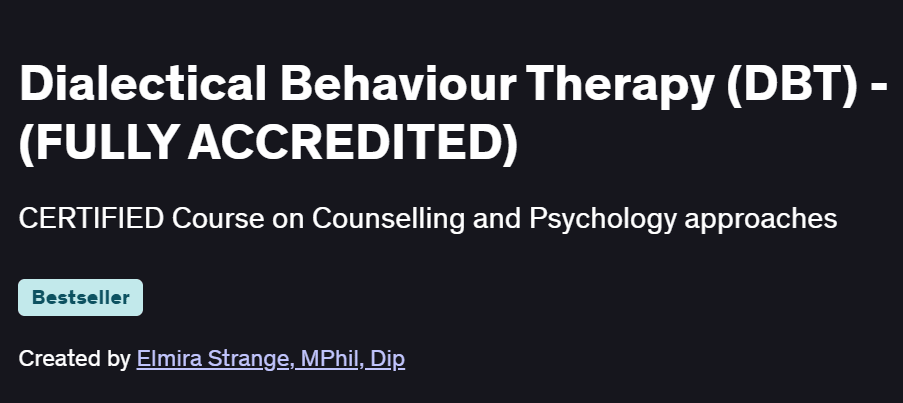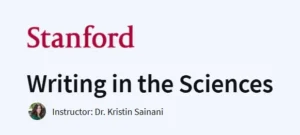What you will learn in Dialectical Behaviour Therapy (DBT) – (FULLY ACCREDITED) Course
Understand the core concepts and principles of Dialectical Behavior Therapy (DBT).
Learn the four main components of DBT: mindfulness, distress tolerance, emotion regulation, and interpersonal effectiveness.
Study the techniques used in DBT to help clients manage emotions and improve mental health.
Explore how to apply DBT to treat conditions like borderline personality disorder (BPD), depression, and anxiety.
Gain practical skills for using DBT skills in your personal and professional life.
Program Overview
Introduction to DBT
⏳ 1-2 hours
Learn the foundational principles of Dialectical Behavior Therapy and its development by Marsha Linehan.
Study the core goals of DBT, including helping individuals live more effective lives.
Understand how DBT focuses on balancing acceptance and change for mental health improvement.
Mindfulness Skills
⏳ 2-3 hours
- Learn how mindfulness is integrated into DBT to help clients stay present and manage distressing emotions.
- Study mindfulness practices, including observing, describing, and participating in the present moment.
- Explore techniques for fostering non-judgmental awareness and acceptance.
Distress Tolerance Skills
⏳ 2-3 hours
- Study DBT’s distress tolerance skills, which help individuals manage difficult emotions without acting impulsively.
- Learn techniques for crisis survival strategies and accepting reality in high-stress situations.
- Understand how to help clients tolerate painful emotions while maintaining control.
Emotional Regulation Skills
⏳ 3-4 hours
- Learn how to help clients identify and change negative emotions through DBT techniques.
- Study strategies for managing intense emotions such as anger, sadness, and anxiety.
- Explore ways to increase emotional resilience and improve emotional balance for better mental health.
Interpersonal Effectiveness Skills
⏳ 3-4 hours
Understand how to enhance communication skills and improve relationships through DBT.
Learn how to assertively communicate needs, set boundaries, and build meaningful relationships.
Study how to handle interpersonal conflicts and improve social interactions.
DBT Techniques in Therapy
⏳ 2-3 hours
- Learn how DBT can be applied in therapeutic practice, particularly in individual and group therapy settings.
- Study the structure of DBT sessions and the role of a therapist in helping clients integrate DBT skills.
- Explore how to apply DBT for various mental health issues, such as BPD, depression, and trauma.
Final Project: Applying DBT Skills
⏳ 3-4 hours
Apply DBT skills through real-life case studies and practical exercises.
Study the application of DBT techniques in different client scenarios to refine your practice.
Receive feedback to improve your ability to integrate DBT techniques into therapeutic work.
Get certificate
Job Outlook
DBT-trained therapists are in demand for treating a range of mental health issues, especially in outpatient, inpatient, and private therapy settings.
Mental health professionals with DBT certification can expect to earn between $45K and $75K annually, depending on their experience and practice setting.
DBT is also a valuable skill for social workers, counselors, and psychologists specializing in personality disorders, trauma, and emotional regulation.
Specification: Dialectical Behaviour Therapy (DBT) – (FULLY ACCREDITED)
|





